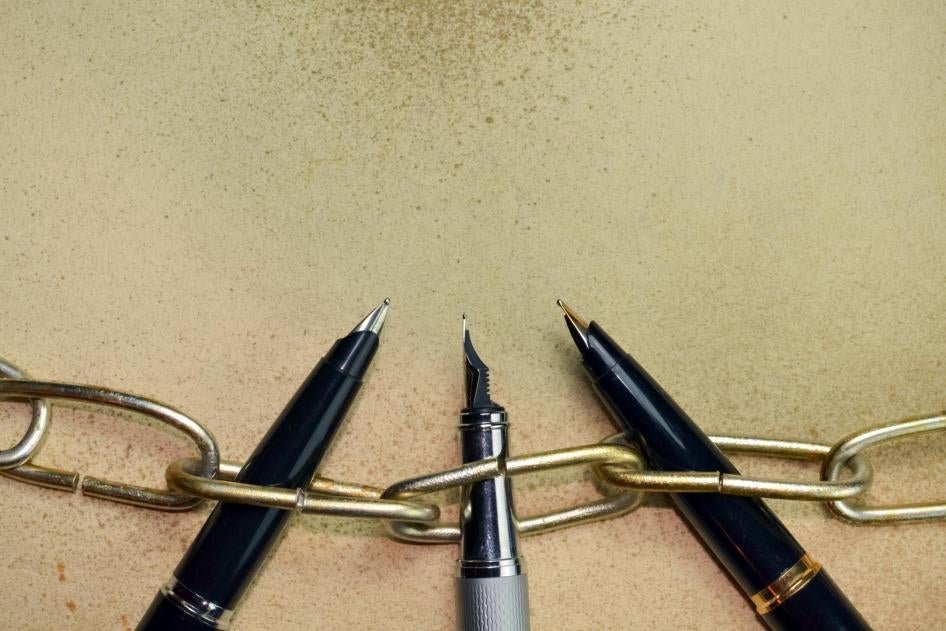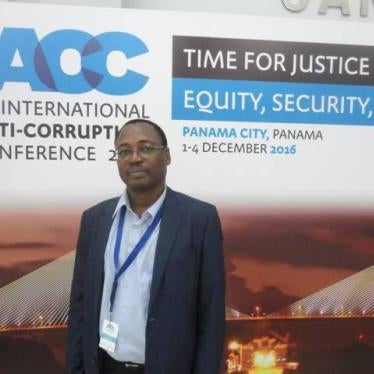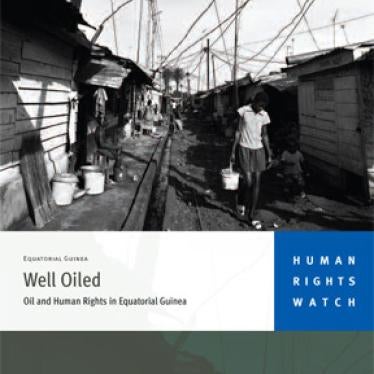(Washington, DC) – Equatorial Guinean authorities arrested a political cartoonist and activist on September 16, 2017, Human Rights Watch and EG Justice said today. He has been held in detention since then and authorities may be preparing to file criminal defamation charges against him.
The arrest of the cartoonist, Ramón Nsé Esono Ebalé, is the latest episode of government retaliation against artists who have used their work to criticize the government. EG authorities should repeal the country’s colonial-era defamation statute, which allows for the criminal prosecution of people who criticize the president and top government officials. They should abandon any plans to charge Ebalé under that law and, if he is accused of no other crime, release him immediately and without charge.
“The Equatorial Guinea government has again demonstrated its hostility to any form of critical expression that escapes its heavy-handed censorship,” said Tutu Alicante, executive director of EG Justice, which monitors human rights violations in Equatorial Guinea.
Three state security officers detained Ebalé outside a restaurant in the capital, Malabo, at about 7 p.m. on September 16, along with two Spanish nationals who were with him. All three men were taken to the Office Against Terrorism and Dangerous Activities in the Central Police Station. The Spanish nationals were interrogated about their connection to Ebalé and freed after several hours.
Authorities continue to hold Ebalé without charge, exceeding the 72-hour period allowed under Equatoguinean law. Interrogators reportedly questioned him about his political cartoons, which often lewdly caricature President Teodoro Obiang Nguema Mbasogo and other government officials, and repeatedly told him that people may only participate in politics if they are associated with an official party.
Ebalé has lived outside of Equatorial Guinea for several years and had returned to the country to renew his passport. He has not been taken before a judge, which Equatoguinean law requires within 24 hours. Family members were allowed to see him on September 18 and 19, though prison guards refused to allow his sisters to visit on September 17 or to confirm he was being held there.
Based on the interrogators’ apparent questions, EG Justice and Human Rights Watch are concerned that Ebalé may be charged with violating Equatorial Guinea’s criminal defamation statute. In Human Rights Watch’s view, such laws are incompatible with the right to free expression and Equatorial Guinea’s statute should be repealed.
The arts have traditionally served as a safe space for independent voices to provoke public debate on social issues in Equatorial Guinea, a country with little tolerance for political dissent. But EG Justice and Human Rights Watch have documented an increasing number of incidents over the past two years in which the government has retaliated against artists and cultural groups.
In one recent incident, in July, authorities arbitrarily detained Benjamin Ndong, known as Jamin Dogg, after he released a song in support of taxi drivers protesting an increase in licensing fees. In August 2016, authorities suspended a UNICEF-funded theater production raising awareness about HIV after a comment from the audience questioning why the government hadn’t done more to stop the spread of the disease. And in August 2015, the interior minister closed an independent cultural center in Rebola after an artist performed a rap song critical of the government.
“Prosecuting a cartoonist for unflattering satirical drawings is incompatible with free speech and only highlights the power of the pen,” said Sarah Saadoun, researcher at Human Rights Watch.








